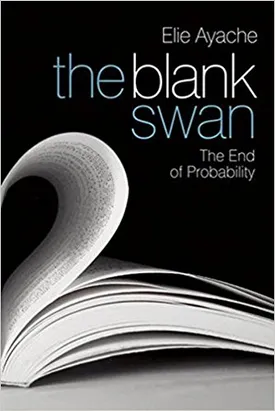The Blank Swan: The End of Probability by Elie Ayache
The Blank Swan: The End of Probability, by Elie Ayache, is a treatise examining the concept of probability and its application in the fields of finance, mathematics, and science. In the book, Ayache proposes a new understanding of probability, one that is based on randomness and uncertainty rather than on prediction. He argues that traditional methods of thinking about probability, such as probability theory, are not equipped to offer the crucial insights needed for modern markets and investments. Furthermore, he suggests that current risk management and forecasting models are based on overly simplistic assumptions, which can hinder decision-making.
The Blank Swan is an ambitious work of philosophy, mathematics, and economics that offers an update to old-fashioned probability-based models of prediction. Ayache begins by stating that, due to its dependence on the future, probability is essentially impossible to predict. He then argues that existing models of probability are outdated in their method of thinking, and that it is necessary to develop new models in order to make sense of our chaotic world. Ayache then proposes a new definition of probability which he calls "Blank Swan Theory."
Blank Swan theory, based on uncertainty and randomness, is a reaction to the traditional probability model which seeks to explain events by examining patterns in the past. Ayache claims that randomness, instead of regularity, should be used as the basis for understanding and predicting events. He further investigates the implications of such a theory for markets, suggesting that uncertainty and unpredictability should be embraced as much as possible.
Ayache also looks at the philosophical implications of his theory and concludes that the end of probability is the end of certainty. He argues that by embracing the blank swan theory, we are better able to deal with the unpredictable nature of reality. In his analysis, Ayache provides a framework for understanding how to think and act in an uncertain and unknowable environment. Moreover, he points out how a shift in probability theory could lead to a better understanding of the economies at work in modern markets.
Though the book is extremely technical, its ideas are well-argued and the analysis is meticulously examined. The book serves as a valuable source for anyone looking to better grasp the complexities of the world of finance and markets. From budding traders to advanced investors and mathematicians, The Blank Swan provides thought-provoking insight into probability, making it an essential read for those wanting to make informed decisions about investments and market activities.

